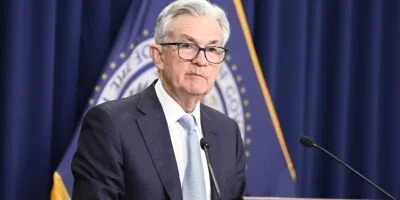Greece and the Lost Opportunity of the Euro
With the financial crisis affecting the United States and Europe, here and there are comments and concerns on what could happen with the dollar, the euro and even the international monetary order. With politicians and economists warning that the financial crisis can become the worst economic situation since the Great Depression, this concerns comes with no surprise. In some cases even a return to gold standard is mentioned as a possible outcome. Needless to say, to predict what will actually happen is certainly very difficult. One can try to predict with more or less confidence what the economic problems will be in a foreseeable future. Will, for example, a given country be in a position to have to default on its debt? But to predict what course of action politicians and policy makers will actually take when the moment comes may have more of psychological than economic prediction. Economics can provide the context, but to try to predict what the actual decision these big player will take is a very different problem.
That the euro could replace the dollar as the international currency is one of the potential outcomes mentioned. The problems Greece are facing these days could be an example of how the European Union could have lost such opportunity through their fiscal policy.
Greece is in a precarious situation such that if it doesn’t receive a new bail-out by the European Union it will have to decide between a strong cut in public spending or to leave the euro, go back to the drachma (or a new currency) and depreciate (Argentina’s 2001 crisis is an example of this situation). Politicians usually choose to depreciate the currency before cutting spending, despite that what households and firms actually do during a crisis. But, of course, there are no special economic laws for government. One way or another, this no other thing than a transfer from their citizens to the government.
The European Union is in a road with no easy exit. If it lets Greece fall,then this will spread to other countries, most likely Ireland and Portugal. To let Greece fall will increase the expected risk of investing in these other countries, that means that the market value of their sovereign bonds will fall. This will have two effects. First, financial institutions holding bonds from these countries will see their portfolios affected. They’ll have less valuable bonds and their solvency will go even worse. Second, these countries will have further trouble to issue new debt into the market because the new bonds they may issue will be bought by the market at a lower price. But if all this happens Spain may follow. Spain, however, is a much bigger economy. If Spain fails it may drag the rest of the European Union. Spain may not be too big to fail, but it can be too big to be saved.
However, if the European Union decides to save Greece, why should the other countries cut their spending rather than wait their turn to be saved? To have a big player, like a central bank, creates strong moral hazard incentives that can backfire. It wasn’t a secret that something was wrong with the housing market and that the bubble would sooner will become a problem. A monetary policy coordination between the European Central Bank and the Fed is pointless if there if the countries run fiscal deficits. Had the countries in the European Union avoided fiscal deficits, the European Union would be today standing in a much better situation, and the euro would be in a better positions against the dollar as an alternative currency.
There’s no such thing as a sound monetary policy that is not supported by a fiscal stability.
Nicolas Cachanosky is a doctoral student in economics at Suffolk University, as well as a previous Sound Money Essay Contest winner.
Image: jscreationzs / FreeDigitalPhotos.net









